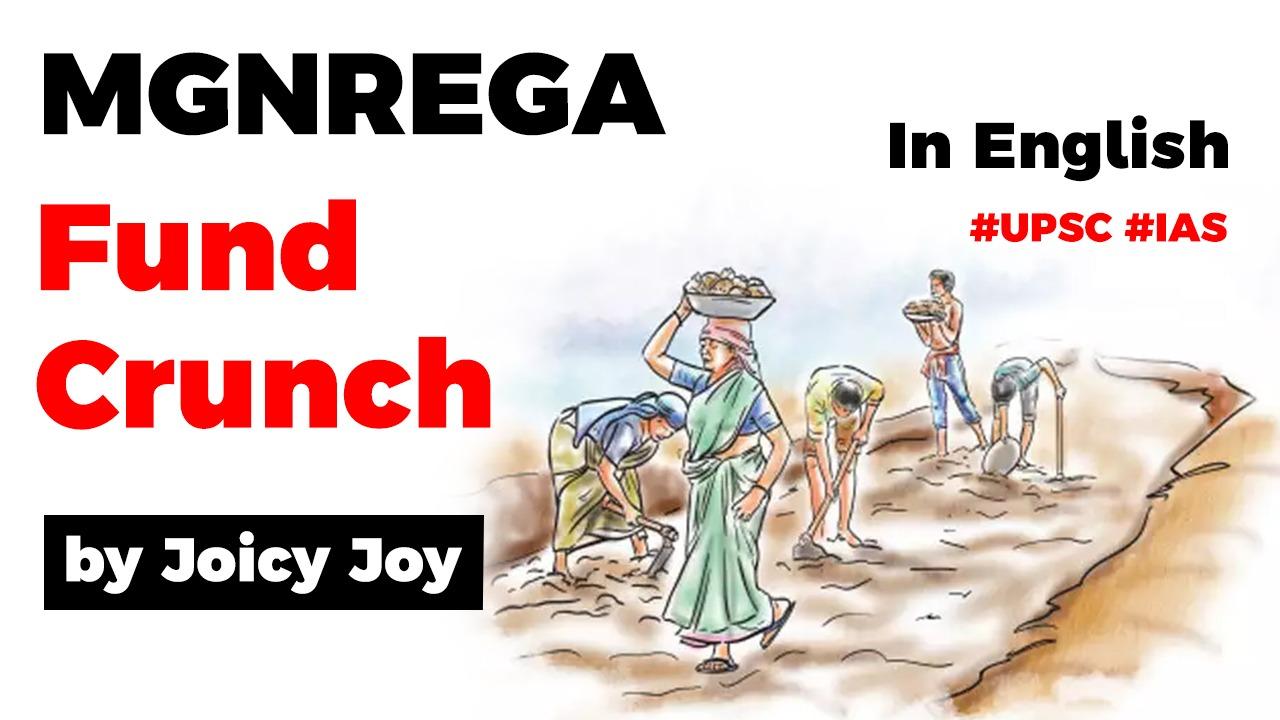Table of Contents
CURRENT AFFAIR
- According to the Mahatma Gandhi National Rural Employment Guarantee Act (MGNREGA) scheme’s financial statement as on 26th January, 2020, the centre is on the verge of running out of funds for the
Mahatma Gandhi National Rural Employment Guarantee Act, 2005
- The Act aims at enhancing the livelihood security of people in rural areas by guaranteeing hundred days of wage employment in a financial year to a rural household whose adult members (at least 18 years of age) volunteer to do unskilled work.
- The central government bears the full cost of unskilled labour, and 75% of the cost of material (the rest is borne by the states).
- It is a demand-driven, social security and labour law that aims to enforce the ‘right to work’.
- Ministry of Rural Development (MRD), Government of India in association with state governments, monitors the implementation of the scheme.
STATUS
- More than 96% of the allocated money has already been spent or is needed to pay pending dues, with less than ₹2,500 crores left to sustain the scheme for the next two months.
Budget Allocation
- The budget allocation for 2019 for MGNREGA scheme was ₹60,000 crores which is lower than the amount spent in 2018.
Current Status
- Many state governments have not paid the wages to workers as the Centre has not released funds.
- It is contrary to the spirit of the Act and violates the principle of rights-based implementation of the MGNREGA scheme.
Central Employment Guarantee Council
- Central Employment Guarantee Council is a forum constituted under Section 10(3) (d) of the MGNREGA Act, 2005.
- It is responsible for a central monitoring and evaluation system for the scheme, besides advising the government on its implementation.
- The Central Employment Guarantee Council has not met in two years despite it being mandatory to hold a meeting every six months.
STATE WISE SCENARIO
- Rajasthan has the highest negative net balance of ₹620 crores, followed by ₹323 crores in Uttar Pradesh.
- Some States still have funds remaining only because they are actively suppressing demand and turning workers away.
- State governments do not want to be liable to pay interest for delayed wages, so they suppress demand.
- The actual situation may be worse as States do not always enter pending payments into the information
Urgency for Funds
- January, February and March are months with little agricultural activity when rural workers need
- There is a high demand for work in 2019 as the rural economy is in distress and informal employment has also collapsed. A number of economists have recommended that putting money into the hands of rural consumers via MGNREGA is a key to kickstarting the economy.
- The scheme is running out of money and will enter in 2020-21 with pending liabilities.
- Unemployment
- Economic slowdown
- Stagflation
Latest Burning Issues | Free PDF






















 WhatsApp
WhatsApp